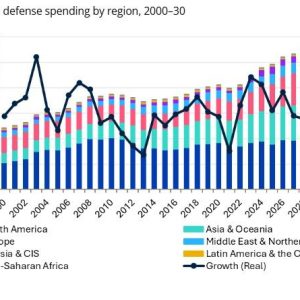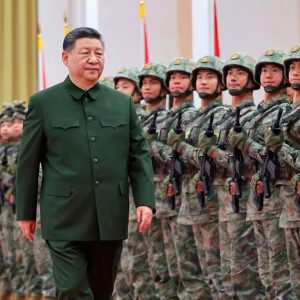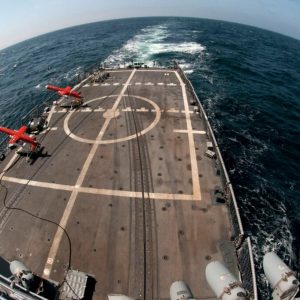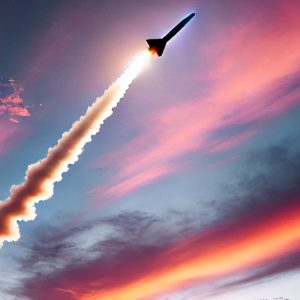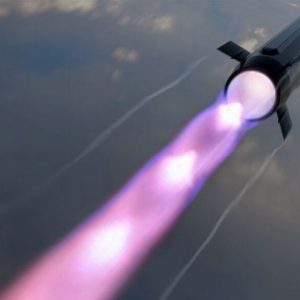The Saudi Arabia defense technology transfer initiative took a decisive leap forward during the International Defense Industry Fair (IDEF 2025) in Istanbul — one of the largest defense exhibitions in Eurasia and a focal point for high-level government and industry engagements. At the event, Saudi Arabian Military Industries (SAMI) signed landmark agreements with three of Türkiye’s most prominent defense manufacturers: Nurol Makina, FNSS Defense Systems, and ASELSAN.
These agreements go far beyond conventional procurement. They are structured to bring advanced production capabilities, engineering expertise, and critical know-how directly into Saudi Arabia’s industrial ecosystem. Under the terms, manufacturing of armored vehicles, advanced turret systems, and related defense technologies will be localized in the Kingdom, creating a foundation for long-term sovereign capability.
For Riyadh, these deals are not merely transactions — they are strategic investments that support Vision 2030’s defense localization target, which aims for at least half of Saudi Arabia’s defense budget to be spent on domestically produced systems. This milestone reflects a broader policy shift in which the Kingdom seeks not only to equip its armed forces with modern platforms but also to control the intellectual property, manufacturing processes, and technical expertise behind them.
Land Systems and Advanced Turret Manufacturing
Nurol Makina, a leading Turkish armored vehicle manufacturer, will collaborate with Saudi Arabian Military Industries (SAMI) to set up localized production lines for its combat-proven 4×4 tactical armored vehicles. These vehicles, known for their modular design and high survivability, will be adapted to meet the operational requirements of the Saudi Armed Forces and assembled entirely within the Kingdom.
FNSS Defense Systems, renowned for its tracked and wheeled armored combat platforms, will take the lead on producing advanced 8×8 armored combat vehicles and integrating state-of-the-art turret systems. This cooperation will allow Saudi Arabia to field modern, highly mobile land platforms equipped with precision firepower, while also mastering the assembly and integration processes.
ASELSAN, Türkiye’s largest defense electronics and systems provider, will transfer complete technical knowledge for manufacturing its SARP 100/25 remote-controlled turret. Deployed extensively in various combat environments, the SARP system combines advanced targeting, stabilization, and fire control capabilities — enhancing both offensive and defensive capabilities of Saudi-produced armored vehicles.
All three production lines will be housed within the upcoming SAMI Land Industrial Complex (SLIC), a flagship facility scheduled to open in late 2025. Designed to Industry 4.0 specifications, SLIC will employ robotics, Internet of Things (IoT) systems, and AI-driven automation to deliver precision manufacturing at scale. The facility will serve as a central hub for advanced land systems production, quality assurance, and integration — ensuring that Saudi Arabia develops not just assembly capacity, but full-spectrum manufacturing competence.
Strengthening Saudi–Turkish Defense Cooperation
These new agreements build on a foundation of earlier Saudi–Turkish defense cooperation, most notably the Baykar AKINCI unmanned aerial vehicle (UAV) program signed in 2023. That landmark deal not only brought the advanced AKINCI drone into Saudi service but also committed to local production of UAV components within the Kingdom. It involved collaboration with Saudi industrial partners for assembly, systems integration, and long-term maintenance, ensuring that knowledge and technical expertise would remain in-country.
At IDEF 2025, this cooperative framework expanded significantly. Additional memoranda of understanding (MoUs) were signed covering a broad range of capabilities, including drones, precision-guided munitions, and defense electronics. These MoUs aim to establish joint production facilities, co-develop critical subsystems, and integrate Saudi suppliers into the supply chains of leading Turkish defense firms.
By broadening the scope beyond land systems to aerial platforms, advanced munitions, and electronic warfare technologies, Riyadh and Ankara are positioning their defense industries for sustained collaboration. This integrated approach strengthens the Saudi Arabia defense technology transfer agenda and lays the groundwork for a long-term, diversified partnership that spans multiple domains of modern warfare.
For related coverage, see Baykar AKINCI Deal Strengthens Saudi Drone Capability.
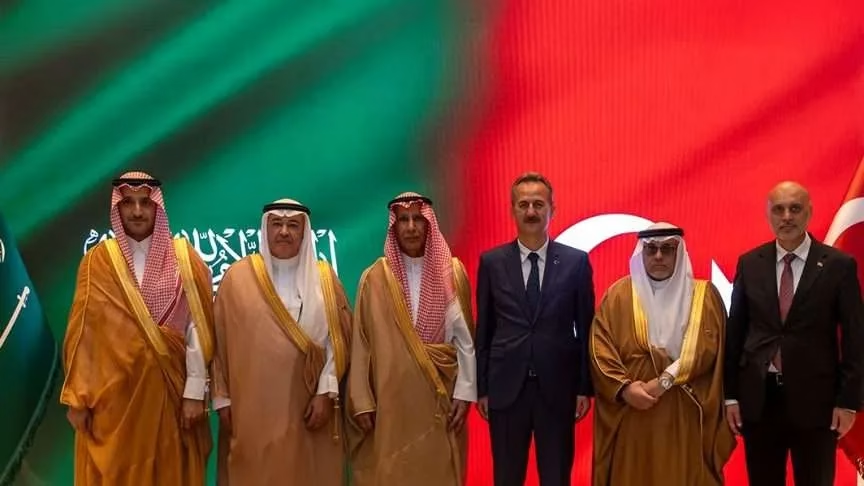
Strategic and Economic Impact
For Saudi Arabia, the defense technology transfer agreements represent far more than procurement deals — they are a deliberate strategy to retain a greater share of defense spending within the national economy. By manufacturing advanced systems domestically, the Kingdom can redirect billions of riyals that would otherwise flow abroad into local industries. This approach generates skilled, high-value employment for Saudi engineers, technicians, and assembly specialists while nurturing a domestic ecosystem of component suppliers and subcontractors. Over time, it strengthens industrial resilience and reduces dependence on external supply chains during crises.
For Türkiye, the benefits are equally strategic. Access to Saudi Arabia’s high-value defense market brings steady export revenues and long-term production contracts for Turkish manufacturers. The collaboration also deepens political and military ties with a major Gulf power, enhancing Ankara’s influence in the Middle East. Moreover, by embedding Turkish defense technology in Saudi platforms, these deals secure a sustained role for Turkish firms in the Kingdom’s modernization programs, ensuring a mutual interest in the success of both defense industries.
Future Prospects
Beyond land systems and unmanned aerial vehicles, both governments have opened discussions on potential Saudi participation in Turkey’s KAAN fifth-generation fighter program. This indigenous stealth aircraft project, currently in advanced development by Turkish Aerospace, represents the pinnacle of Türkiye’s defense engineering ambitions. If Saudi Arabia commits to the program, it would not only secure access to cutting-edge combat aviation but also embed Saudi industry in one of the most technologically advanced military projects in the region. Such cooperation would elevate bilateral defense ties to an unprecedented level and could significantly alter the balance of airpower in the Gulf and wider Middle East.
In a broader context, the Saudi Arabia defense technology transfer program illustrates how well-structured strategic partnerships can accelerate industrial growth, build sovereign defense capabilities, and reinforce long-term national security objectives. By combining Saudi Arabia’s financial resources and strategic vision with Turkey’s proven design, manufacturing, and integration expertise, both nations are crafting a partnership model that goes beyond short-term contracts. Instead, it fosters mutual dependence, shared technological advancement, and enduring geopolitical alignment — setting a precedent for future defense collaborations in an increasingly multipolar world.
Read the full article here







